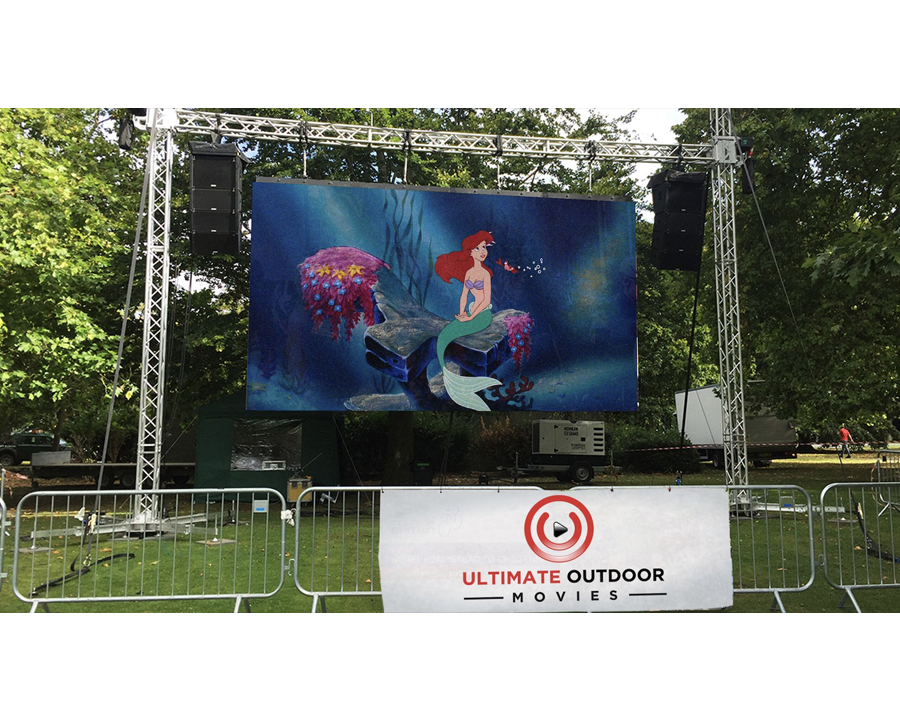
If you are using a led display, you may ask yourself if you can show any movie. To play films in public or commercial space, you need a movie license. This article will explain movie licensing, explain the legal risks, and how to get proper rights.
What Is A Movie License and Why Is It Important?
A movie license is legal to show a film to the public. It protects the copyright law and makes sure that the filmmakers and studios get paid for their work. The licenses that come with buying a DVD or streaming a movie at home are only for personal use. Public performance of the movie without the movie owner’s additional rights is playing it in public.
Movie licenses serve several purposes. Intellectual property theft is prevented, businesses are protected from lawsuits and creators are fairly compensated. These rights are vital to many production companies’ income. They deny them revenue and they are strictly enforced.
If you have a digital signage system and you want to show movies, you must buy the appropriate license. If you are not charging an entry fee, even if you are not performing for profit, the law regards public showings as performances that need permission. These rules apply to any business or organization including restaurants, hotels, retail stores, the corporate offices and even outdoor advertising spaces.
Legal Implications of Playing Unlicensed Movies on LED Displays
Showing movies without a public performance license can be a serious legal problem. Penalties are harsh and movie studios and authorities alike watch and monitor unauthorized screenings.
The result of the first is a copyright infringement lawsuit. There are legal teams in studios that keep an eye out for public showings of the movie without permission. Caught and you could be fined hundreds to thousands of dollars. There have been businesses sued for damages that exceed their annual profits. Random inspections are conducted by copyright enforcement agencies and if you are caught violating the law you may be sued immediately.
The other risk is business reputation damage. Losing customer trust and credibility can happen to a company that breaks copyright laws. Public image is really important to many businesses, and they can suffer badly if they get embroiled in a legal dispute. If you ignore this, customers may view your business as untrustworthy.
Fines and settlements for intellectual property violation can also be quite costly. If it sues, you may be required to pay not only fines but also legal fees. These costs can mount up and small businesses can find it difficult to recover financially. In the worst case, business owners get arrested and criminally charged.
Compliance audits are also done by government agencies and private organizations. They see if businesses are abiding by media licensing laws. If they discover violations, you could get a cease and desist order or some other order, or even criminal charges. Ignoring copyright laws can also cause the seizure of your LED display equipment and other assets associated with the violation.
Types of Movie Licenses for LED Displays
3.1 Movie performance license: Required for any screening in a public place other than private home (for example, restaurants, hotels, malls, outdoor events). This is the most common license a business will require.
3.2 Single-event license: Needed for one-time screenings, such as a movie night at a park or a corporate event. This type of license permits businesses to screen a film without a long term agreement.
3.3 Umbrella license: Covers multiple movies from different studios for ongoing public performances. It eases the licensing for businesses that play films often. This is great for venues that regularly play movies, such as cinemas, entertainment centers or shopping malls.
3.4 Non commercial, educational screening license: For schools, libraries and universities to show movies for non commercial educational purposes. This is important for institutions that make use of films as part of the curriculum or for academic purposes.
3.5 Advertising integration license: The license that is needed by a business if it wishes to play movie clips alongside advertisements on an LED billboard. It provides this license which ensures that the movie content is being used legally and promoting products or services.
How to Obtain A Movie License for Your LED Display
4.1 Choose the movie you wish to show. Depending on the studio, some films need to be licensed through other agencies. It is important to research the distributor and their licensing policies.
4.2 Contact the licensing company. Licensing for various movies is handled by major firms such as Swank Motion Pictures, MPLC, and Criterion Pictures. They are intermediaries between businesses and film production companies.
4.3 Choose the appropriate license. Depending on your business type and audience size, you will choose the right selection whether it is a commercial display license or educational one. Some licenses are even limited to frequency and duration.
4.4 Pay the licensing fee. However, costs depend on factors such as movie popularity, how often the movie is screened, and where it is shown. There are some licenses that require a one time payment and some that require ongoing fees. For instance, older, independent films might have lower licensing costs than high demand movies.
4.5 Receive and display your license. You then get a legal certificate once it is approved. Make it available to comply with checks. It is also common for certain licensing agencies to require businesses to display their license in a visible manner to show that they are in compliance.
Alternatives to Licensed Movies For LED Displays
5.1 Some of the movies are available for free (Royalty free films). These films can be legally shown without any extra fees. There are a multitude of free movies available through Internet Archive and Open Culture.
5.2 Promotional videos: Instead of movies, show promotional videos, customer testimonials or brand storytelling content. It also avoids copyright issues while keeping people interested. Video ads can be created to showcase businesses’ products and services to their customers.
5.3 Original videos: Create original videos especially for your business. Movies can be as effective in attracting attention as high quality visuals and animations. Most businesses spend money on professional video production for their LED displays.
5.4 Websites like Pexels and Unsplash have stock footage compilations which can be edited to create engaging displays. Businesses can make compelling video presentations without copyright restrictions as long as they use stock footage.
5.5 Event streams and live broadcasts: If you have a real time event, such as a sports event, news event or even social media feed, live broadcasting can be a great alternative. If necessary, make sure you have the right to broadcast streams. Some business partners with media companies to stream licensed live content legally.
Conclusion
A LED display cannot play any movie without a license. Movie licensing is crucial for your business to be compliant, safeguard and avoid legal troubles. Alternatives such as royalty free films and advertisements are great if licensing is expensive. Before showing any film, always check with licensing agencies.

Enter the digital world with our advanced display technologies.


